Filter by Categories
What the Sacrifices Mean
Sermonette by John W. Ritenbaugh (1932-2023)The sacrificial system of Leviticus typifies spiritual sacrifices which we perform under the New Covenant. The animal sacrifices focused on total commitment.
This Life of Sacrifice
CGG Weekly by Richard T. RitenbaughChristians cannot be self-indulgent, as getting for ourselves is contrary to the way of God, which is the way of love, of give, and of outgoing concern. Selfishness in any form distorts the essence of Christianity, undermining the sacrifices and the freely given grace of God that sustain it. As Paul teaches in Romans 12:1, we are called to present our bodies as a living sacrifice, holy and acceptable to God, which is our reasonable service. Most of us are not required to die as martyrs, but we must sacrifice ourselves while living by maintaining holiness and acceptability before Him. This daily life as members of the Family of God involves intensive sacrifice, making the Christian life hard. Our frequent sacrifices often center on the conflict between the ways of this world and the way of God, requiring us to give up worldly desires that draw us back or to sacrifice aspects of ourselves to meet the high standards God has set for His people. Sacrifice is the key to overcoming sin and making progress toward the Kingdom of God, despite the internal resistance we feel to letting go of harmful things like anger, offense, gossip, lies, hatred, pride, and greed, which our human natures cling to as part of who we are.
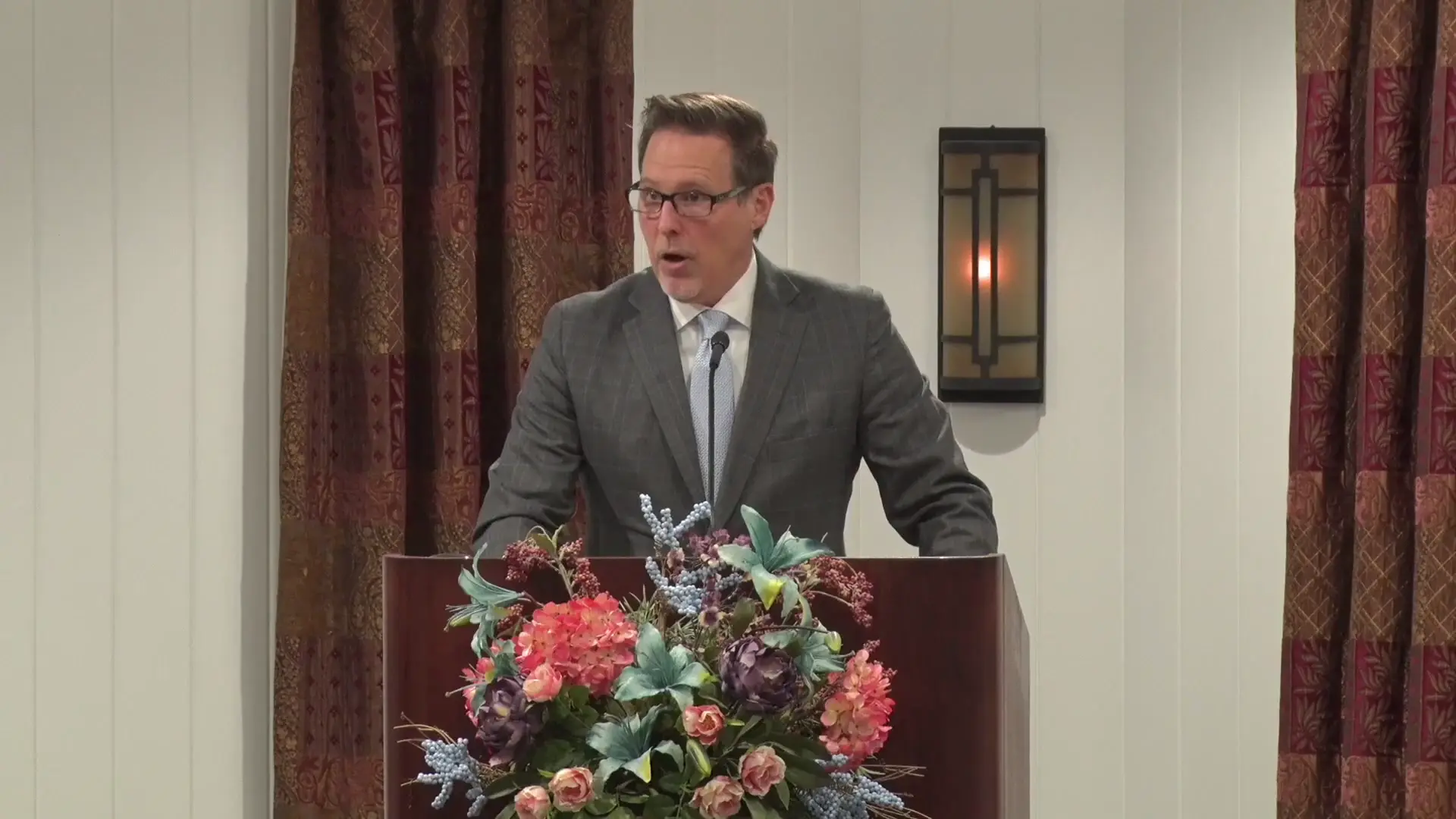
The Bond of Perfection: Sacrifice
Sermon by Bill OnisickThe concept of a living sacrifice is central to our relationship with God. It is through our daily sacrifices of obedience, prayer, praise, and mindshare that we respond to God's ultimate sacrifice, receiving His presence and enabling Spirit. These daily acts of sacrifice are how God helps us overcome our self-focused carnal nature, transforming it into a God-focused and others-focused nature. Little by little, with each sacrifice to Him, we gradually put to death our carnal nature, becoming more like God. Sacrifice is the means by which God creates us into His image. Our sacrifices must encompass both devotion to God and service to man. Sacrifices in devotion to God, akin to burnt offerings, are unacceptable without the corresponding sacrifices in service to man, akin to grain offerings. These daily sacrifices to each other include controlling our mind, bridling our tongue, giving of our time and resources, forbearance, forgiving wrongdoing, and sacrificing our egos to maintain peace. When we walk in God's Spirit of unmerited sacrifice each day, we are gradually putting our self-focused carnal spirit to death, becoming more God-focused and others-focused. Sacrifice, by definition, requires a cost—the giving up of something valuable for a greater benefit. It demands a denial of what we want, a loss of something we value, or a suffering we would rather avoid. Our carnal mind resists sacrifice, especially unmerited sacrifice, due to the fear of losing self-esteem. Yet, we must reframe sacrifice as an investment, focusing on the spiritual outcome and the lasting dividends of eternal life. Through our imperfections and mistakes, we create opportunities to learn how to give unmerited sacrifice, mirroring the way of God, who gives unmerited sacrifice as Jesus Christ did for us. We are being built up as a holy priesthood to offer up spiritual sacrifices acceptable to God through Jesus Christ. With each daily sacrifice of devotion to God through service to Him, and through each daily sacrifice of devotion to God through unmerited service to man, we are being transformed into the fullness of Jesus Christ. Sacrifice is not just one thing; it is everything, reflecting the greatest investment God and Jesus Christ made before the foundation of the world to cover the sins of all mankind for all time.
The Sacrifices of Leviticus (Part 2)
Sermon by John W. RitenbaughGod's purpose for us, as revealed in His Word, calls us to strive to live as Christ did, becoming a living sacrifice in our daily lives. This concept of a living sacrifice parallels Christ's own life, where He offered Himself completely to God, not just in His death, but in the way He lived every moment. As we obey God's instructions and resist the pull of human nature, we sacrifice ourselves to His purpose, mirroring the daily spiritual sacrifice that continues from the Old Covenant into our lives today. This living sacrifice is reflected in the burnt offering described in Leviticus, which represents total devotion to God, a sweet savor to Him, indicating no sin but rather a voluntary and wholehearted surrender. Christ, in living His life as a perfect example, gave Himself as a gift to the Father, a life wholly devoted from beginning to end. We, too, are called to make a gift of ourselves to God, identifying with the offering by surrendering every aspect of our lives—our thoughts, emotions, actions, and strength—to His will. Paul's words remind us of this parallel, showing that as Christ was crucified, we are to die daily to our flesh, making choices to give up selfish desires and grow in spiritual character. This process of becoming a living sacrifice requires our active participation, as we cannot passively conform to God's image but must choose to follow Christ's example. By striving to live as He lived, with total devotion and voluntary surrender, we fulfill God's purpose to be sculpted into His holy and righteous character.
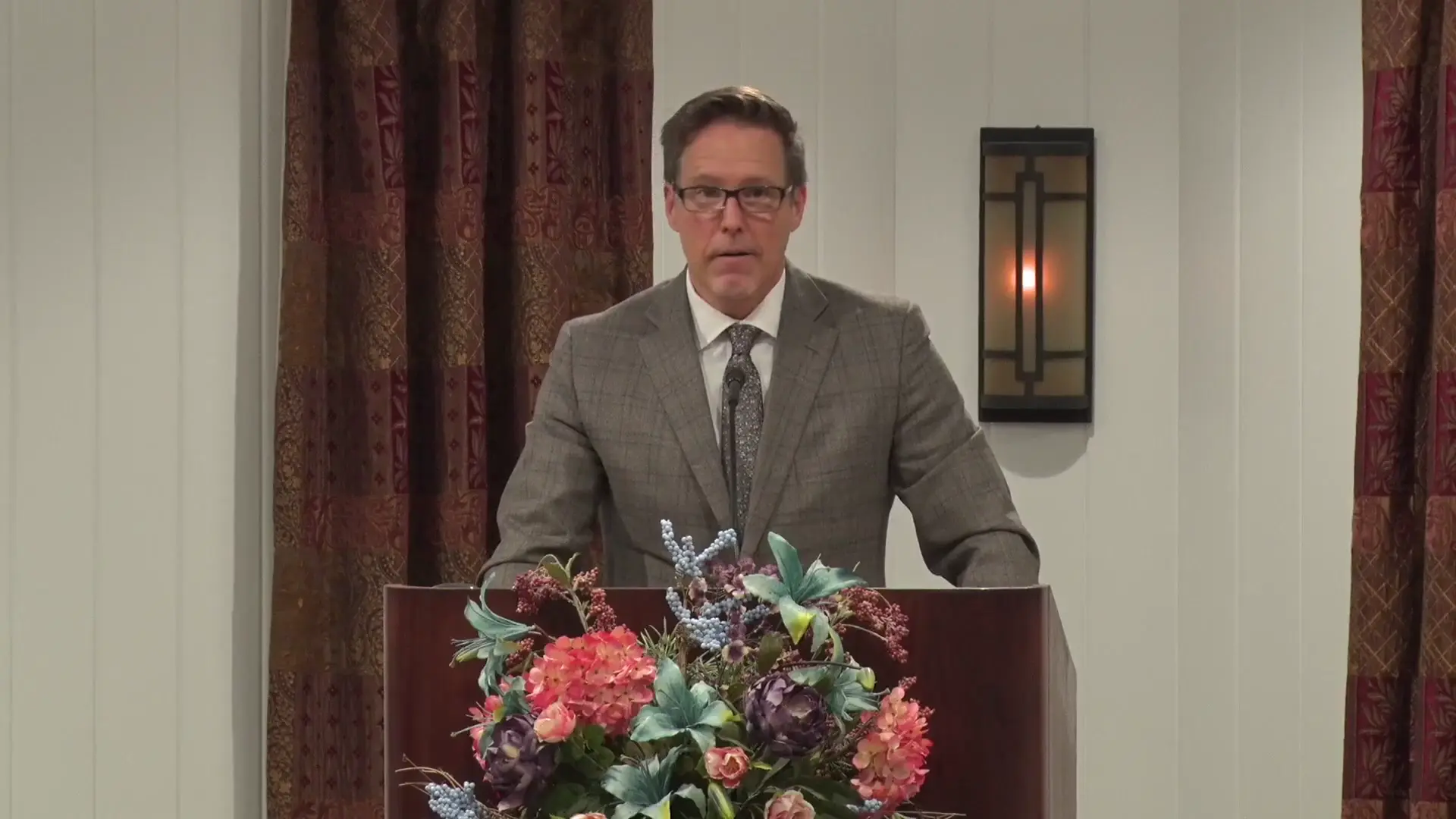
Sacrifice Dost Thou Want: Kindness
Sermon by Bill OnisickSacrifice is the core of what God desires from us each day. From the beginning, God has instructed mankind on the requirements for proper sacrifice. Jesus Christ's sacrifice was foreordained before the foundation of the world, serving as both substitutional and representative. His substitutional sacrifice, a once-for-all perfect offering, opens the door to our relationship with God, allowing God the Father and God the Son to dwell with us through Their enabling Spirit. Representatively, Jesus Christ's living sacrifices on earth exemplify the daily offerings we must make through our own living sacrifices. Our daily sacrifices to God involve whole burnt offerings of our mind, time, repentance, obedience, prayer, study, and praise, through which we put to death our carnal nature. This allows God to dwell with us and bring His Spirit, enabling us to perform daily sacrifices in service to others through grain offerings. These grain offerings occur when we sacrifice our egos, put others first, and create peace. Only when these sacrifices are done together, with the proper attitude, can we achieve perfect communion with God and fellow man, as represented by the peace offering. Sacrifice requires the action of giving up something valuable for a greater benefit, involving denial, loss, or suffering we might prefer to avoid. All the fruit of God's Spirit stems from humble sacrifice. We are called to serve one another through sacrifice, which is the bond of perfection, enabling us to become at one with God by responding to His initial sacrifice for us. Through daily sacrifices, we overcome our selfish carnal nature to become like God, offering sacrifices to each other in service and devotion.
The Offerings of Leviticus (Part Five): The Peace Offering, Sacrifice, and Love
'Personal' from John W. RitenbaughThe peace offering teaches many things, but one of its main symbols is fellowship. Our communion with the Father and the Son obligates us to pursue peace.
Principled Living (Part Four): Giving of Ourselves
Sermon by Richard T. RitenbaughI beseech you with all my heart to present yourselves as living sacrifices, driven by the boundless mercies of God. These mercies, vast and undeserved, encompass every blessing, every act of forgiveness, every strength and revelation He has poured upon us. Because of all that He has done, we owe Him our very beings, urged to offer ourselves wholly in response to His grace. In the backdrop of old covenant practices, where dead sacrifices of animals were offered without lasting effect, we now stand under a new way through Jesus Christ. Unlike those lifeless offerings, we are called to be living sacrifices, useful and continuous, a sweet savor to God, presented often as part of our daily walk. This sacrifice demands the totality of our being. It is not merely our physical bodies, but our entire selves—mind, spirit, and will—that we must offer. Every aspect, from head to toe, must be given completely to God, reflecting a full surrender of who we are. Our living sacrifice must also meet the qualifications of being holy and acceptable to God. Holiness means being set apart, dedicated, and pure, unblemished in our offering. It must align with His will and standards, ensuring that what we present is pleasing to Him, not merely what we deem fitting. Finally, understand that presenting ourselves as living sacrifices is the essence of true worship. It is our reasonable service, a logical and spiritual response to all that God has done. This service, rendered as He commands, is righteous activity that honors Him, aligning with His prescribed way rather than our own notions of worship.
Principled Living (Part One): Imitating Christ
Sermon by Richard T. RitenbaughFollowing Jesus requires absolute commitment, often involving sacrifice and discomfort. We must be willing to give up family and societal ties for God's sake.
Forgiving, Giving, and Living
Sermon by Martin G. CollinsGod possesses attributes that are His alone, like omnipotence, omnipresence, and omniscience. But there are other attributes that become part of our new nature.
Principled Living (Part Six): Becoming Holy
Sermon by Richard T. RitenbaughPentecost forces us to stand out from the crowd, separated as firstfruits for sanctification and holiness. God has called us to be different.
An Acceptable Sacrifice
Sermonette by John W. RitenbaughAbel was totally consumed, becoming the first martyr for faith. Likewise, when we are called to God, we can expect to be used until we are consumed.
It's Important to God Too (Part One)
Sermonette by John W. RitenbaughGod intends that we give ourselves as living sacrifices, mortifying our carnal nature, allowing God to consume our abilities in service.
Overcoming (Part 6): Self-Surrender
Bible Study by Martin G. CollinsMany words that begin with 'self' are conditions that we must overcome. Self-surrender, however, is something we need to engage in to overcome our faults.
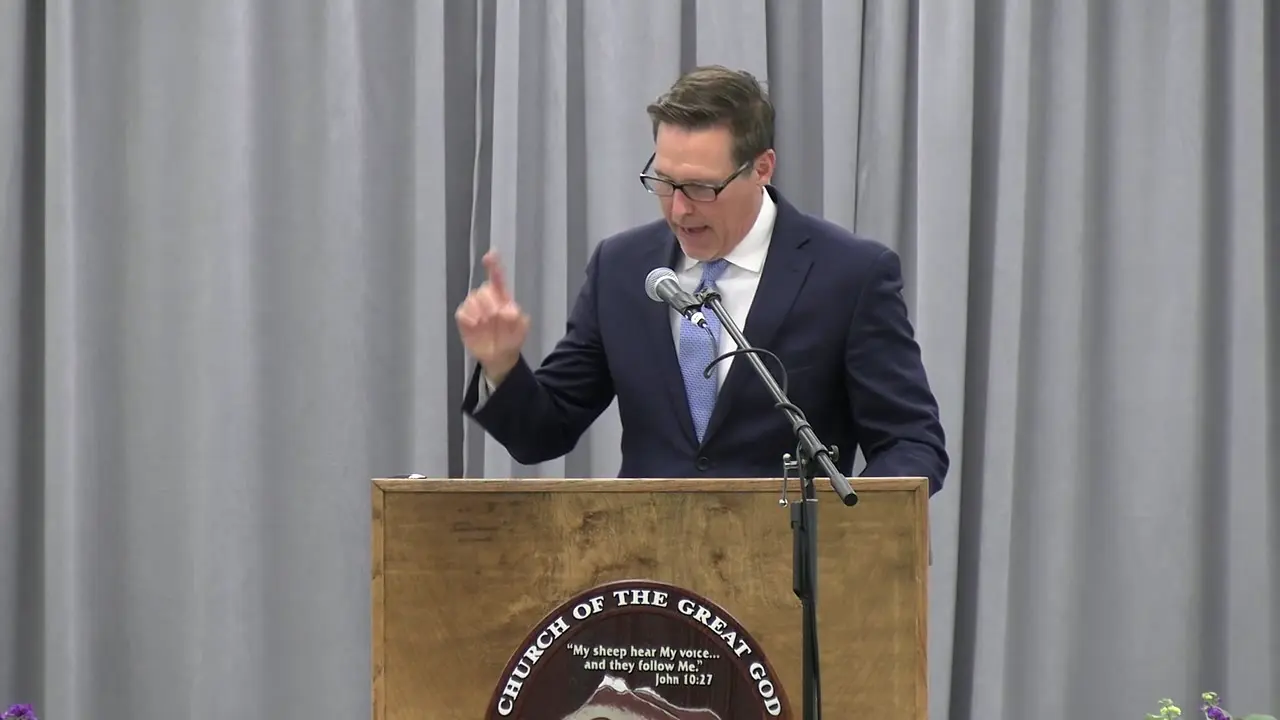
The One Thing
Feast of Tabernacles Sermon by Bill OnisickSacrifice is the foundational principle for salvation and spiritual growth, as exemplified by Christ's preordained sacrifice before the world's creation.
Are You Bearing Your Cross?
'Ready Answer' by StaffHow do we, as modern Christians, bear our cross as Jesus commands? Christ meant far more than simply carrying a stake over our shoulders!
Pentecost and Memorial Day
CGG Weekly by Richard T. RitenbaughPentecost and Memorial Day may seem to be quite different, but we should not be too hasty in concluding that they do not share any common features.
The Offerings of Leviticus (Part Nine): Conclusion (Part Two)
'Personal' from John W. RitenbaughThere must be something to prove we are one with Christ and in union with the Father and the Son. That something is the manner in which we conduct our life.
Jephthah's Vow: Did He or Didn't He?
'Ready Answer' by Richard T. RitenbaughJephthah's vow has been a bone of contention for centuries. Did he really sacrifice his daughter? What kind of man was Jephthah?

The Awesome Cost of Love
'Personal' from John W. RitenbaughWe assess costs and values all the time in our daily lives. We should employ the same process to God's love for us in giving His Son as the sacrifice for sin.
Without Me, You Can Do Nothing (Part Two)
CGG Weekly by David C. GrabbeProducing fruit is not simply a matter of having Jesus Christ or being forgiven. He says we will not produce anything unless we go on growing in Him.
Approaching God Through Christ (Part Two)
Sermon by Richard T. RitenbaughThe brazen altar symbolized total sacrifice. We have to be willing to give up everything, bearing our own individual cross, forsaking all to follow Him.
Preparing to Be a Priest
Sermon by John W. RitenbaughThe primary function of a priest is to assist people in accessing God so that there can be unity with God. A priest is a bridge-builder between man and God.
Leadership and Covenants (Part Twenty-Two)
Sermon by John W. Ritenbaugh (1932-2023)Much of Protestantism misconstrues the significance of the New Covenant as a 'free pass into Heaven' without paying attention to the Law within the Covenant.
The Fruit of the Spirit: Self-Control
'Personal' from John W. RitenbaughHas anyone, other than Jesus Christ, really exhibited self-control? In the end, however, this is the ultimate aim of growing in the character of God.
Made By Fire
Sermonette by Richard T. RitenbaughWe are a kingdom of priests, called to be living sacrifices, ardently serving God, with a view of being consumed or used up in service to Him.
The Offerings of Leviticus (Part One): Introduction
'Personal' from John W. RitenbaughThe offerings of Leviticus, though not necessary under the New Covenant, are invaluable for teaching about Christ in His roles as sacrifice, offerer, and priest.
Knowing Christ (Part 2)
Sermon by John W. RitenbaughChrist's sacrifice was not merely substitutionary, but representative, with Christ giving us a pattern for life - mortifying our flesh and putting out sin.
Wilderness Wandering (Part Three)
Sermon by John W. Ritenbaugh (1932-2023)We are being fitted as lively stones into an already formed Kingdom, being conformed to the image of Christ, who has been designated as the Cornerstone.
The Offerings of Leviticus (Part Two): The Burnt Offering
'Personal' from John W. RitenbaughThe burnt offering is completely consumed on the altar. This type of offering teaches us about Christ's total dedication to God—and how we should emulate it.
Offerings (Part Two)
Sermon/Bible Study by John W. RitenbaughThe sacrifices teach us about the mind, heart, and character of Jesus. The burnt offering symbolizes complete devotion to God in every aspect of life.
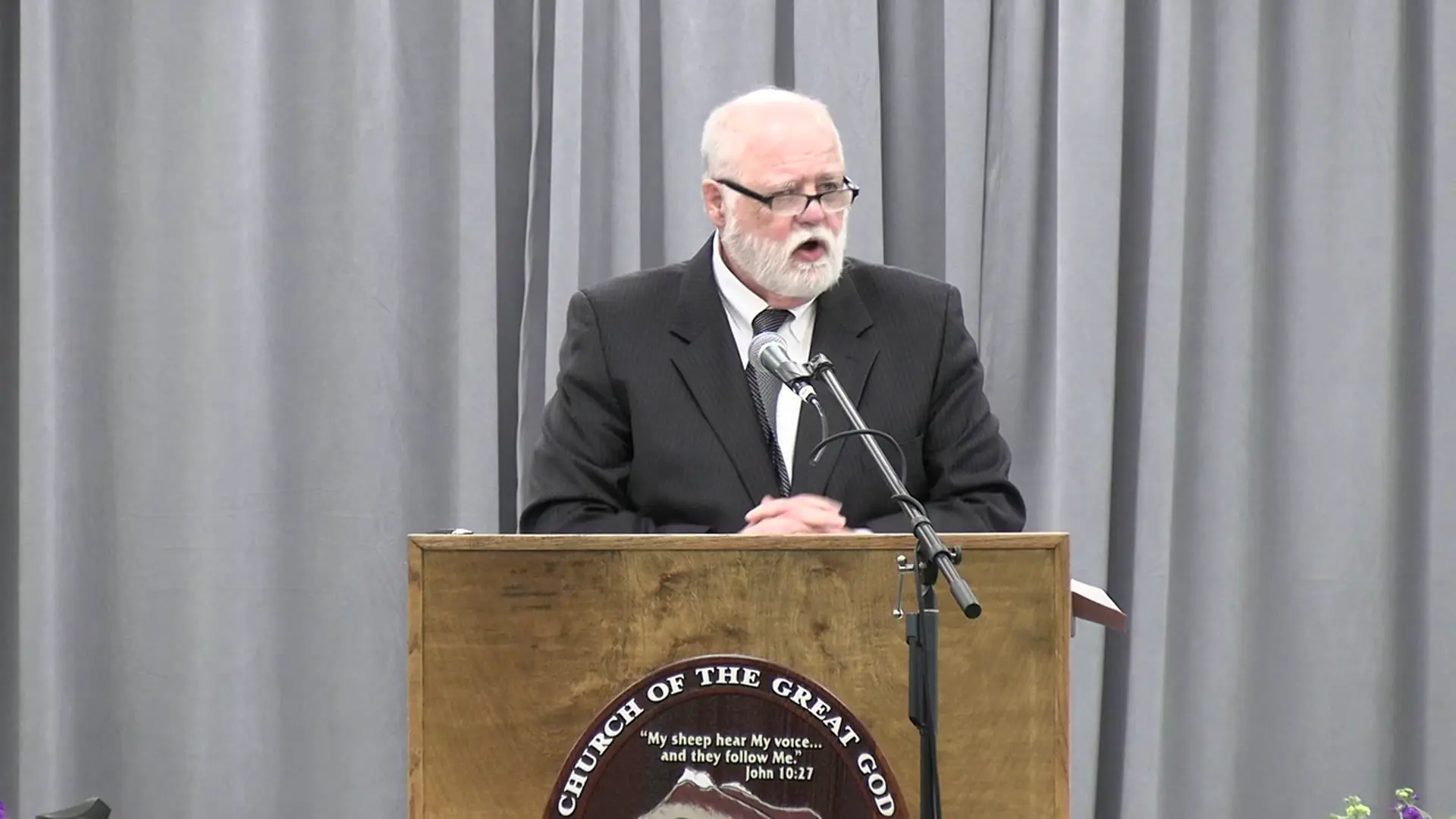
The Sentinels
Feast of Tabernacles Sermon by Ted E. BowlingBelievers are God's sentinels, chosen for a higher duty, guarding the truth with precision, humility, and reverence, honoring Christ's ultimate sacrifice.
No Greater Love
'Ready Answer' by StaffChrist says that we can show no greater love than in sacrificing our lives. We must come to the point where we are doing this daily, yet how do we do this?

Stephen and the New Deal
Article by Richard T. RitenbaughStephen's early martyrdom stands as a striking example of faith and commitment, to the extent that even Christ stood as He witnessed the deacon's sacrifice.
Life Is Service (Part Two)
Sermon by Richard T. RitenbaughA culture of slavery pervaded life in the early Christian church, forcing Paul to pen instructions accommodating this practice in the context of love.
According to My Gospel
Sermonette by Charles Whitaker (1944-2021)Paul's believed that there is only one gospel and used the terms 'gospel of God' and 'gospel of Jesus Christ,' teaching the same things as Jesus Christ.
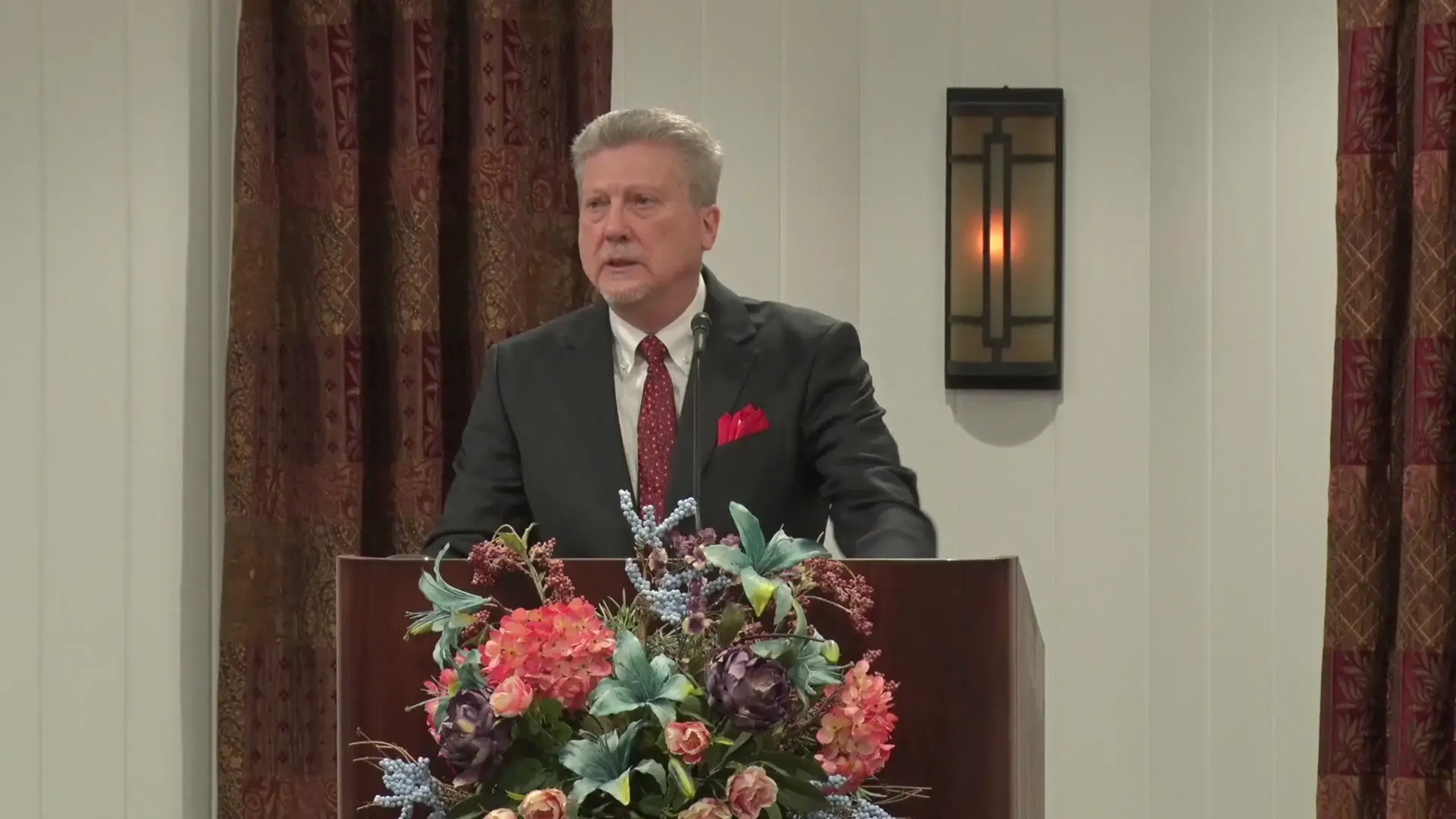
Psalm Genres (Part Three B): Messianic (continued)
Sermon by Richard T. RitenbaughThe psalmists, often through typology, centered on David, prophesying about the character, suffering, resurrection, kingship, and priesthood of Jesus Christ.
Giving a Gift Strengthens and Bonds
Sermonette by Martin G. CollinsGiving a gift strengthens the bond between individuals, bringing about a warm feeling in the giver toward the one receiving the gift.
Christian Service
Sermon by Richard T. RitenbaughAlthough selfless service is not valued today, it is at the core of God's character and a trait we must emulate to go to a higher level of Christian living.
Matthew 5:13: 'What is the Salt of the Earth?'
Sermon by Richard T. RitenbaughFollowers of Christ are encouraged to serve as the spice of godliness in a fallen world by preserving, enhancing, sacrificing, witnessing, and blessing.
Fasting
Sermonette by James BeaubelleThe best offering we can present is a humble and contrite heart, attainable through fasting, if done without pride and self-seeking.
A New Beginning
Sermon by Martin G. CollinsAtonement represents a new beginning when people of the world would be reconciled to God and freed from their bondage, reflecting the year of Jubilee.
Is the Christian Required to Do Works? (Part One)
'Personal' from John W. RitenbaughWhy do so many nominal Christians reject works and obedience to God's law? Largely because they fail to gather God's whole counsel on this subject.
God Works in Mysterious Ways (Part Five)
Sermon by John W. RitenbaughFor His Own reasons, God has chosen not to reveal His plan to those the world considers wise, but, instead, to work with the weaker sort of mankind.
To Test You
Sermon by John O. ReidJesus, Joseph, David, and Abraham all endured considerable trials before they qualified for their offices. We must make our calling and election sure.
John (Part Twenty-One)
Sermon/Bible Study by John W. RitenbaughThe humble attitude exemplified by Jesus in footwashing shows the mind of God. God expects us to follow Christ's example of loving others, flaws and all.
Offerings (Part One)
Sermon/Bible Study by John W. RitenbaughThe burnt offering shows Christ giving Himself completely to God as God's portion. It represents a life fully devoted to God, which is what truly satisfies Him.
Church Unity Despite the Spirit of the World
Sermon by Martin G. CollinsThe unity of God's church does not derive from organizational expertise, the conformity of ecumenism, or the tolerance for evil, but from the family model.
Human Will
Feast of Tabernacles Sermon by Richard T. RitenbaughGod's children should never emulate the self-willed attitude Frank Sinatra's song "My Way" glorifies. Human nature and godly character are polar opposites.